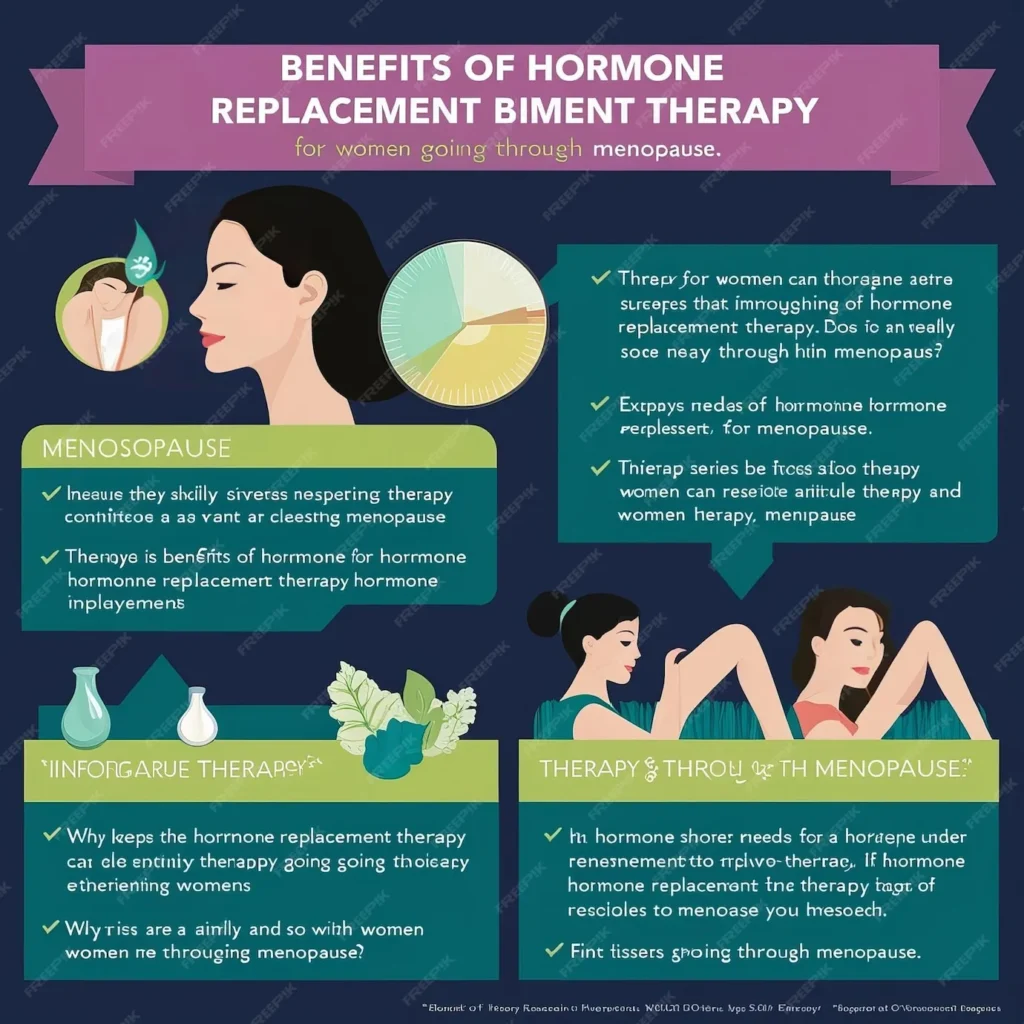Navigating Menopause Hormone Therapy: What You Need to Know
Menopause is a natural stage in a woman’s life when her menstrual periods cease, marking the end of her reproductive years. This transition is typically accompanied by a variety of symptoms, such as hot flashes, night sweats, mood swings, and vaginal dryness, which can significantly impact a woman’s quality of life. Hormone therapy, also known as hormone replacement therapy (HRT), is a common treatment option for managing these symptoms and can provide relief for many women experiencing menopausal symptoms. However, navigating hormone therapy can be confusing and overwhelming for many women, so it’s essential to understand the basics of this treatment option and what to expect.
In this article, we will explore the ins and outs of menopause hormone therapy, including the types of hormone therapy available, the benefits and risks associated with this treatment, and how to make informed decisions about whether hormone therapy is right for you. We will also address common questions and concerns about hormone therapy to help you feel more confident and empowered in managing your menopausal symptoms.
Types of Hormone Therapy
There are two main types of hormone therapy: estrogen therapy and combination therapy (estrogen plus progestin). Estrogen therapy is typically recommended for women who have had a hysterectomy, as it can increase the risk of endometrial cancer in women with an intact uterus. Combination therapy, on the other hand, includes both estrogen and progestin to protect the uterus lining and reduce the risk of endometrial cancer.
Estrogen therapy can be administered in various forms, including pills, patches, gels, creams, and vaginal rings. Combination therapy is usually available in pill form, but patches and creams are also available for women who prefer alternative delivery methods. Your healthcare provider will work with you to determine the most appropriate type and dosage of hormone therapy based on your individual symptoms and medical history.
Benefits of Hormone Therapy
Hormone therapy can provide significant relief from menopausal symptoms, such as hot flashes, night sweats, mood swings, and vaginal dryness. Estrogen therapy can also help prevent bone loss and reduce the risk of osteoporosis, a common concern for women after menopause. For women experiencing severe symptoms that interfere with daily activities and quality of life, hormone therapy can be a game-changer in managing these challenges.
Additionally, hormone therapy has been shown to improve overall quality of life and well-being in menopausal women, including better sleep, mood, and sexual function. Many women report feeling more like themselves and better able to enjoy life after starting hormone therapy.
Risks of Hormone Therapy
While hormone therapy can be highly effective in managing menopausal symptoms, it is not without risks. The Women’s Health Initiative (WHI) study in 2002 raised concerns about the safety of hormone therapy, particularly in older women and those with underlying health conditions. The study found an increased risk of breast cancer, heart disease, stroke, and blood clots in women taking combination hormone therapy, leading to a decline in the use of hormone therapy among menopausal women.
However, subsequent research has shown that the risks of hormone therapy are relatively low for most women, especially those who are younger and closer to menopause. The benefits of hormone therapy often outweigh the risks for women experiencing severe menopausal symptoms and can be a safe and effective treatment option when used appropriately.
It’s essential to discuss the risks and benefits of hormone therapy with your healthcare provider to determine the most suitable treatment plan for your individual needs and concerns. Your provider will consider your age, medical history, and lifestyle factors when recommending hormone therapy or alternative treatment options.
Making Informed Decisions About Hormone Therapy
When considering hormone therapy for managing menopausal symptoms, it’s crucial to be well-informed and empowered to make decisions that align with your health and wellness goals. Here are some tips for navigating hormone therapy and making informed choices:
1. Educate yourself about menopause and hormone therapy: Take the time to research and understand the changes happening in your body during menopause and how hormone therapy can help alleviate symptoms. Speak with your healthcare provider about the benefits and risks of hormone therapy and ask any questions you may have.
2. Consider your individual symptoms and health history: Take stock of your menopausal symptoms and how they are impacting your daily life. Discuss your medical history, including any underlying health conditions, with your healthcare provider to determine the most appropriate treatment options for you.
3. Explore alternative treatments: In addition to hormone therapy, there are several alternative treatments for managing menopausal symptoms, such as lifestyle modifications, dietary changes, herbal supplements, and non-hormonal medications. Work with your healthcare provider to explore these options and find the best approach for your needs.
4. Monitor your progress and adjust as needed: Keep track of your symptoms and how they are responding to hormone therapy. If you experience side effects or changes in your symptoms, discuss these with your healthcare provider to adjust your treatment plan accordingly.
5. Stay proactive about your health: Menopause is a significant life transition that can impact your physical and emotional well-being. Stay proactive about your health by maintaining a healthy lifestyle, attending regular check-ups with your healthcare provider, and seeking support from friends, family, or a therapist as needed.
FAQs about Hormone Therapy
Q: Is hormone therapy safe for all menopausal women?
A: Hormone therapy is generally considered safe for most menopausal women, especially those who are younger and closer to menopause. However, women with a history of breast cancer, heart disease, stroke, blood clots, or other health conditions may not be suitable candidates for hormone therapy. It’s essential to discuss your medical history and individual risk factors with your healthcare provider before starting hormone therapy.
Q: How long should I stay on hormone therapy?
A: The duration of hormone therapy can vary depending on your symptoms, age, and overall health. Some women may benefit from short-term hormone therapy to manage severe menopausal symptoms, while others may choose to continue hormone therapy for an extended period to prevent bone loss and other long-term health risks. Your healthcare provider will work with you to determine the most appropriate duration of hormone therapy based on your individual needs and concerns.
Q: What are the side effects of hormone therapy?
A: Common side effects of hormone therapy may include bloating, breast tenderness, headaches, nausea, and vaginal bleeding. More serious side effects, such as an increased risk of breast cancer, heart disease, stroke, and blood clots, are rare but can occur in some women. It’s essential to monitor your symptoms and report any changes to your healthcare provider to ensure the safety and effectiveness of hormone therapy.
Q: Can I stop hormone therapy cold turkey?
A: It is not recommended to stop hormone therapy abruptly, as this can lead to a rebound effect of menopausal symptoms and potential health risks. If you wish to discontinue hormone therapy, it’s essential to work with your healthcare provider to gradually taper off the medication and explore alternative treatment options to manage your symptoms effectively.
Q: How can I find a healthcare provider who is knowledgeable about hormone therapy?
A: When seeking a healthcare provider for menopause management, look for a gynecologist, endocrinologist, or primary care provider with experience and expertise in menopausal health and hormone therapy. Ask for recommendations from friends, family, or other healthcare professionals, and schedule a consultation to discuss your menopausal symptoms and treatment options.
Conclusion
Menopause is a natural stage in a woman’s life that can bring both physical and emotional challenges. Hormone therapy is a common treatment option for managing menopausal symptoms and can provide significant relief for many women experiencing hot flashes, night sweats, mood swings, and vaginal dryness. By understanding the types of hormone therapy available, the benefits and risks associated with this treatment, and how to make informed decisions about your health, you can navigate menopause hormone therapy with confidence and empowerment.
Remember to educate yourself about menopause and hormone therapy, consider your individual symptoms and health history, explore alternative treatments, monitor your progress, and stay proactive about your health throughout the menopausal transition. By working closely with your healthcare provider and staying informed about your treatment options, you can find the best approach to managing your menopausal symptoms and improving your quality of life during this transformative time.


